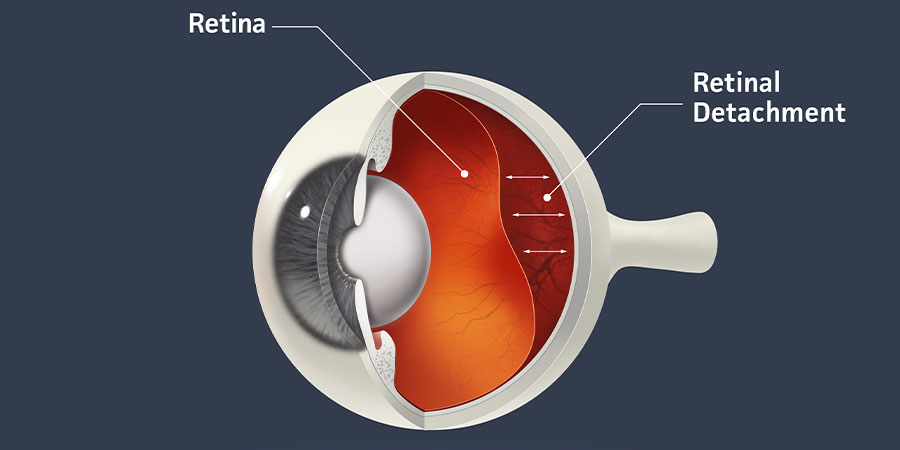- Empty cart.
- Continue Shopping
How to Recognize Early Signs of Retinal Detachment

Retinal detachment is a serious medical condition that can lead to permanent vision loss if not promptly addressed. The retina is a thin layer of tissue at the back of the eye, responsible for capturing light and sending signals to the brain to create visual images. When the retina detaches, it’s akin to losing the film from a camera, making immediate medical intervention crucial.
Understanding Retinal Detachment
Retinal detachment occurs when the retina separates from the underlying layer of blood vessels that provide it with oxygen and nutrients. This separation disrupts the retina’s normal functioning, leading to vision impairment. The condition can occur due to aging, eye injuries, or other eye diseases.
Early Signs to Look Out For
Sudden Appearance of Floaters
Floaters are small specks or threads that float across your field of vision. While they are generally harmless, a sudden increase in the number of floaters could be a warning sign of retinal detachment.
Flashes of Light
Experiencing sudden flashes of light in one or both eyes, especially when moving the eyes or head, can be another early symptom.
Blurred Vision
A gradual or sudden decline in the clarity of your vision may indicate that the retina is detaching.
Darkening Peripheral Vision
A sensation of a shadow or curtain falling across your field of vision, particularly on the sides, is a significant warning sign.
Straight Lines Appearing Curved
If you notice that straight lines start to appear wavy or curved, it could be an indication of retinal issues.
What to Do If You Experience These Symptoms
Seek Immediate Medical Attention
If you notice any of these symptoms, consult an ophthalmologist as soon as possible. Retinal detachment is a medical emergency that requires prompt treatment to prevent permanent vision loss.
Avoid Strenuous Activities
Until you receive medical advice, avoid activities that could exacerbate the condition, such as heavy lifting or high-impact sports.
Diagnostic Tests
Your healthcare provider will likely perform a comprehensive eye exam, which may include:
- Visual acuity test
- Retinal examination
- Ultrasound imaging
Alternative Causes
It’s worth noting that some of these symptoms can also be related to other eye conditions like migraines, eye floaters due to aging, or posterior vitreous detachment, which is generally less severe but still requires medical attention.
In conclusion, Recognizing the early signs of retinal detachment is crucial for timely intervention and preserving your vision. If you experience symptoms like a sudden increase in floaters, flashes of light, or changes in your peripheral vision, seek medical help immediately. While retinal detachment is a severe condition, early detection and prompt treatment can significantly improve the chances of preserving your vision. Therefore, being aware of these early signs and taking immediate action can make all the difference.








